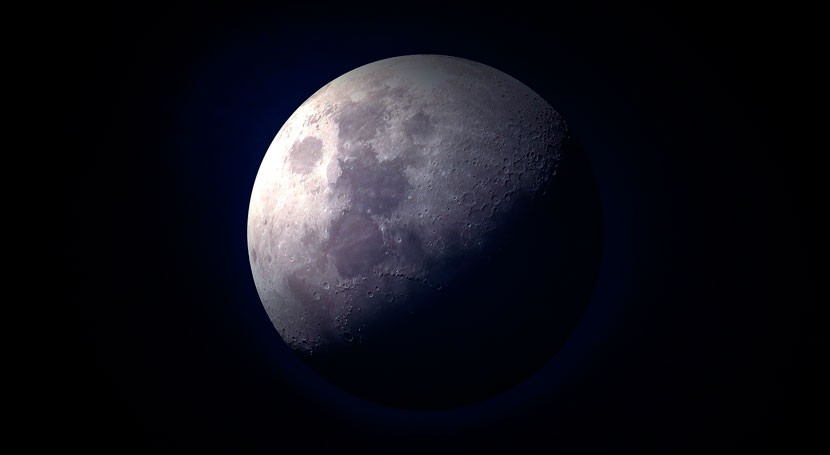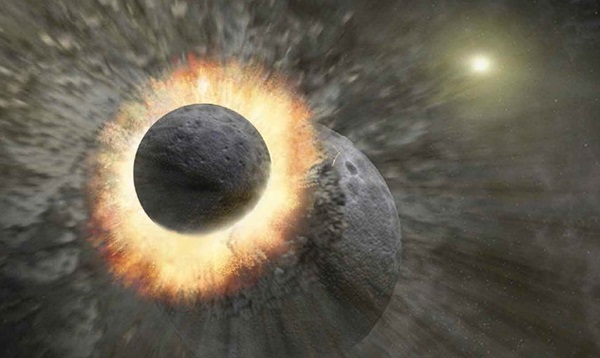
About 70% of the surface of our planet Earth is covered with water. Up to 60% of the human adult body is water.
We are just the right distance from the Sun for this liquid water to exist.
But how did that water get here?
In our Solar System there are large amounts of water in the outer regions in the form of ice and even liquid water under the icy crust.
The most surprising water worlds are the five icy moons of Jupiter and Saturn that show strong evidence of oceans beneath their surfaces: Ganymede, Europa and Callisto at Jupiter, and Enceladus and Titan at Saturn.
Comets contain large amounts of water by being sort of dirty snowballs made of ice and dust.
There is a theory that the water could have come from comets.
When we closely studied our four well-known comets – Halley's Comet,Hyakutake, Hale-Bopp and Churumov-Gerasimenko – we have found that the amount of deuterium (a form of Hydrogen with double the mass) in them is twice of that we find in our average sea water on Earth. If the early Earth had received its water from the collisions with the comets – there would have been the same amount of deuterium in our seawater as it is found on comets. But that's not the case. So we have estimated that no more then 10% of the Earth's water comes from the collisions with comets.
What about meteoroids? Could they be responsible for bringing water to Earth? Meteor objects in the asteroid belt contain up to 20% of water and until recently they were our best bet for delivering water to Earth within the first 100 million years after it formed..
There is also a thought that water might have been incorporated into Earth during the planets' formation by accretion of icy planetisimals when it was 60 to 90 % of its current size. Though this theory is supported by a lot of evidence there is one small "but".
Measuring of the noble gas isotope ratios of the atmosphere show that the Earth's atmosphere and its mantle come from different sources. Also in 2019 scientists from the University of Munster discovered that some of the Earth's core molybdenum (most of the molybdenum on Earth is located in the core) originates from the outer solar system.
So how could that be and what does that mean?
If our atmosphere and our mantle are of different sources it mean that the water could have not appeared on Earth too early in its history, but much later, scientist estimate it could have happened around the time of the Moon's formation.
But most all it means that there should have been a major impact with another planetary body and the material that this body had been made of should have been very water reach.
Now, what do we possibly know about such major impacts in early Earth history?
As a matter of fact there could be one such event.
By one hypothesis in the early solar system a planet called Theia collided with early Earth around 4,5 billion years ago. Theia could have been an Earth Trojan, having orbit similar to that of the Earth's and being around the size of Mars.

Computer models of the impact indicate that Theia's debris gathered around Earth to form the early Moon while Theia's core and mantle mixed with Earth's.
This planetary body might have formed in the outer Solar System rather than the inner Solar System, making it analogous to a Kuiper-Belt object like Pluto. And Theia must have contained large quantities of water that later formed our oceans.
Theia's impact hypothesis also explains why the Earth's core is larger than would be expected for a body its size and why our Moon is so huge comparing to other moons in the solar system.
How could we know that this hypothesis is right?
We can't.
But we might have never look with the same eyes at our Moon again.. and we might cherish our water-rich planet more.
P.S. As I was writing this article, I came across another piece of information - in fact Theia's impact hypothesis (although is still our favorite theory of the Moon's formation) is no longer our best bet for the formation of water. Now scientists believe that the major impact like that would have evaporated the water form the surface of Earth altogether..